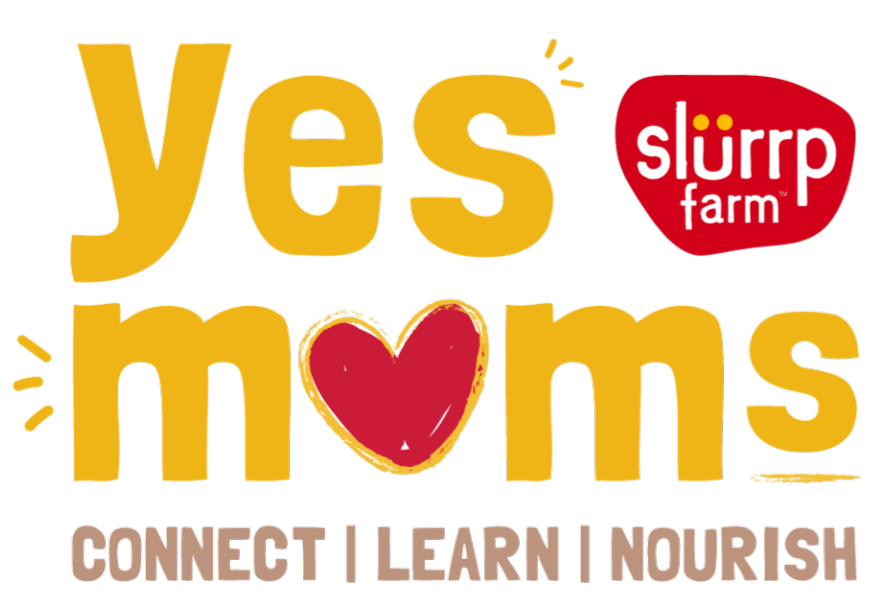Across the world and in India, many parents are choosing to raise their babies as vegetarians or vegans due to religious, ethical, or health-related reasons. Some of the families themselves are vegetarian or vegan and want to bring up the baby with the same practices. As of 2021, India boasts the world's highest country-wise percentage of vegetarians at 20%–39%.
While maintaining these dietary choices can be healthy and rewarding for your child and your family beliefs, some parents are concerned whether their meat-free or plant-based diets give their infants the nutrients required for their growth and development. That’s why it's important to ensure that the diets of vegetarian or vegan babies are well-planned to avoid risk of nutritional deficiencies.
Types of Vegetarian Diets
Did you know there are types of vegetarianism as well?

1) Lacto-Ovo Vegetarian: Don’t eat meat and fish, but consume dairy products (lacto) and eggs (ovo). Since dairy and eggs provide a huge portion of essential nutrients, this diet reduces the likelihood of vitamin and mineral deficiencies in babies.

2) Lacto Vegetarian: Don’t eat meat, fish, and eggs, but consume dairy products. Most of India’s vegetarian population follows this diet.

3) Ovo Vegetarian: Don’t eat meat, dairy products, and fish, but eat eggs.

4) Vegan: Don’t eat any animal-derived products, including meat, dairy, eggs, and even honey.
Remember, with careful planning, you can still provide your baby with all the essential nutrition they need while ensuring a diverse and rich diet. It's important to pay special attention to nutrients like B12 and iron, which are either absent or less readily absorbed in plant-based foods.
We'll now explore these key nutrients and see which vegetarian/vegan foods can help in meeting your baby's nutritional needs.
Key Nutrients for Vegetarian and Vegan Babies
1) IRON
Iron is necessary for the transportation of oxygen through your baby’s body, and this impacts their growth and development. For vegetarian/vegan babies, consuming more iron-rich foods is essential since plant-based sources offer non-heme iron (less or not easily absorbed type of iron).
To know the sources of iron-rich foods and how you can meet your baby’s iron requirements, check our earlier article on iron: Iron-Clad Nutrition: Introducing Iron to Your Baby’s Diet
- Include iron-rich foods in every meal: lentils, pulses, whole grains, millets, and leafy veggies (comprehensive list below).
- Enhance iron absorption by pairing iron-rich foods with Vitamin C sources: Indian berries, tomatoes, lemons, strawberries, bell peppers, and oranges. Add tomatoes and peppers to dals or strawberries to oatmeal while serving your baby.
2) FAT
In the first 1 year, babies undergo rapid growth, which requires a good amount of caloric and fat-rich foods to support them. Healthy fats are essential for babies, as they provide concentrated calories and support healthy brain development. Considering their tiny tummies, plant-based foods (beans, lentils) can be quite filling. Hence, it’s recommended that babies receive all the sufficient calories from fats.
How to meet your baby's fat requirements?

- A big portion of fats they require is received from breast or formula milk. But when we’re focusing on their solid food diet, parents should ensure they’re including some form of healthy fats in their diet.
- Ghee, oils, peanuts, avocados, nuts, and nut powders are good, concentrated sources of calories and fats for vegetarian and vegan babies.

For a quick recap on healthy fats, which we’d covered earlier, click here.
3) ZINC

Zinc is crucial for developing your baby’s immune system. Given that zinc deficiency is a global concern for children and babies, it's an essential nutrient to address when planning your baby's meals.
While breast milk may not always provide sufficient zinc, incorporating zinc-rich foods into their solid diet is vital. Meat, eggs, and fish are common sources of zinc, but plant-based foods like legumes and grains, while good sources of zinc, contain anti-nutrients known as phytates, which can hinder zinc absorption.
How to meet your baby's zinc requirements?

Be sure to include beans, pulses, nuts, seeds, and tofu in their diet.
4) VITAMIN B12
Vitamin B12 is essential for maintaining a healthy blood and nervous system. A B12 deficiency can lead to neurological issues. B12 also plays a critical role in preventing anemia. Babies who lack sufficient B12 might experience low muscle tone, posture difficulties, lethargy, and growth regressions.
These concerns are particularly relevant for vegan babies, as B12 is naturally found in animal foods such as meat, fish, eggs, and dairy products. Plant-based foods lack B12, making vegan infants more susceptible to deficiency.
How to meet your baby's B12 requirements?

- Infants can receive B12 through breast or formula milk, provided that the mother's diet is rich in B12.
- For exclusively vegan babies, it's advisable to supplement their diet with Vitamin B12 from the age of 6 months or when they begin consuming solids.
- Consult your pediatrician or child nutritionist to determine the appropriate dosage for supplementation.
5) IODINE
Iodine is a vital nutrient for babies as it supports the functioning of the thyroid gland, which plays a crucial role in regulating metabolism, as well as promoting healthy bone and brain development
Iodine deficiency can have adverse effects on a baby's growth, potentially leading to delayed physical development, and it is a critical factor in cognitive development.
How to meet your baby's iodine requirements?

- While iodized salt is a reliable source of iodine for adults, salt is not recommended for babies under 1 year. To ensure your baby receives sufficient iodine, breast or formula milk is typically a good source, provided the mother's diet is rich in iodine.
- For babies under 1, who cannot consume salt, a supplement may be necessary. Speak to a doctor regarding the right approach for your baby.
6) OMEGA-3 FATTY ACIDS
Omega-3 fatty acids are essential fats with so many health benefits! They are crucial for your baby's growth, brain development, and eye health. Unlike some nutrients, our bodies cannot produce Omega-3 on their own, so it must be obtained through food.

While fish is a primary source of Omega-3, there are plant-based options like flaxseeds, walnuts, hemp seeds, and chia seeds. But these sources provide ALA (a type of Omega-3), which has to be converted to EPA or DHA (other types of Omega-3) to be effectively and well absorbed by your baby’s body. Hence, it’s a bit challenging to include Omega-3 fats in a vegan or vegetarian diet.
How to meet your baby's Omega-3 requirements?

- include ground or powdered flax seeds or chia seeds into their meals. Just sprinkle it on any food you serve them.
- Consult your pediatrician or nutritionist to explore potential supplementation options if needed.
7) VITAMIN D
Vitamin D is primarily produced by the body upon exposure to sunlight. It is crucial for calcium absorption, bone development, and maintaining healthy teeth. Insufficient Vitamin D can lead to conditions like rickets (weak bones) in children.
While breast milk contains a small amount of Vitamin D, plant-based foods are not reliable sources of Vitamin D. Hence, sun exposure or supplementation are the only reliable ways to provide Vitamin D. But, the American Academy of Pediatrics advises limiting sun exposure for babies and protecting them from direct sunlight.
How to meet your baby's Vitamin D requirements?
- For babies under 1 year, Vitamin D can be provided through supplementation or fortified foods.
- Breastfed infants typically need supplementation, as breast milk contains very little Vitamin D; consult your doctor for appropriate dosages.
- Since formula is usually fortified with Vitamin D, formula-fed babies may or may not need additional supplementation. Because the Vitamin D content will vary based on how much formula they consume a day. We recommend speaking to a doctor or nutritionist about it.
8) PROTEIN
Protein is important for babies’ growth, although their daily requirements are not very high. The protein babies consume mostly supports their growth rather than energy needs.
According to the Indian Dietary Guidelines by the National Institute of Nutrition (NIN), 6 to 12-month babies require approximately 1.6 grams of protein per kilogram per day.
How to meet your baby's protein requirements?
- Include one protein-rich food into every meal. E.g., lentils, pulses, or curd/yogurt. Sprouting pulses can enhance their nutritional value.
- For vegan babies, hummus or tahini can replace curd/yogurt. Additionally, consider adding millet or rajgira/amaranth flour to chapatis, parathas, and other dishes to boost their protein intake.

List of protein-rich foods for your vegan/vegetarian baby
- Well-cooked pulses and lentils, legumes
- Dal, sambhar, kadhi
- Hummus
- Soy/soy milk
- Tofu
- Shredded, medium-firm cheese, such as cheddar, cottage cheese, and mozzarella
- Powdered peanuts/tree nuts
- Amaranth/millets
9) CALCIUM
Calcium is an essential mineral for maintaining strong bones and teeth in infants. Typically, babies under 1 year fulfill their calcium requirements through breast or formula milk, making additional supplementation unnecessary.
How to meet your baby's calcium requirements?
Mothers can play a role in ensuring their baby's calcium intake by incorporating calcium-rich foods into their own diets, as these nutrients are passed on to the baby through breast milk.
List of calcium-rich foods for the vegan/vegetarian mother and baby

- Amaranth grain and ragi
- Vegetables like cauliflower, sweet potato, peas, and Brussels sprouts
- Leafy greens such as fenugreek (methi), spinach (palak), Colocasia (arbi/patvalia) leaves, amaranth (chawli leaves), and kale
- Beans like red beans, pinto beans, mung beans, soya beans, white beans, and horse gram (kulith). Sprouted mung, moth bean (matki), chickpea (chana), masoor (red lentil). Sprouting enhances the calcium content.
- Dried figs and oranges
- Almonds, sesame (til) seeds, walnuts, peanuts, and chia seeds
When Are Vegan Diets Not OK for Babies?
Just like adults, there are certain situations when opting for a vegan diet may not be the best choice for your baby. While vegetarian and vegan diets can generally meet a baby's nutritional needs, it's essential to be mindful of certain signs that might indicate a need for re-evaluation. In such cases, don't hesitate to consult with your doctor or a nutritionist for the best guidance.
1) Pre-existing medical condition: If your baby faces any medical or health conditions that affect their ability to digest or consume certain foods, transitioning to a vegan diet can potentially compromise their nutrition intake.
Some babies tend to have anemia (low iron levels) or a B12 deficiency. Be mindful of signs like lack of energy, frequent colds, headaches, or weakness. These could indicate that your baby isn't meeting their nutritional and calorie needs.
2) Premature babies or low on the growth curve: For babies born prematurely or those who fall behind on the growth curve, there may be a higher requirement for fats and calories. It's advisable to consult your doctor or healthcare professional to ensure your baby receives all the necessary nutrition.
Likewise, if your child is not gaining weight, failing to reach developmental milestones, or not aligning with the expected growth curve, they might not be meeting their nutritional and calorie requirements.

3) Allergy risks: If your baby is at a higher risk of food allergies, a vegan or vegetarian diet might not expose them to common allergens like dairy, eggs, fish, or seafood. This could be challenging, especially if they already have multiple allergies to soy, nuts, or cheese, as it limits essential food sources.
4) Low immunity: If your baby's immune system is compromised, leading to longer recovery times or frequent hospitalizations, you might need to reconsider their diet to ensure they receive all the necessary nutrients.
5) Picky eating: If your baby tends to be an extremely picky eater or you encounter feeding difficulties, their eating habits may be compromised, increasing the risk of nutritional deficiencies. Thus, it may become a challenge for parents to provide balanced meals.
Last 3 Tips!
1) Ensure that the growth of your baby (nonvegetarian, vegetarian, or vegan) is aligned with their age-appropriate growth curve.

2) Vegetarian and vegan diets tend to be more filling. For example, a cup of broccoli contains less calcium than a cup of curd, so babies might need to consume more broccoli to meet their calcium needs. Foods like beans are fiber-rich, causing babies to feel full faster, potentially leading to lower calorie intake. Be mindful of this to ensure they meet all their nutritional requirements.
3) If you're committed to raising your baby as a vegan, we strongly recommend working with a nutritionist or a dietician. Meeting nutrition needs with a vegan diet can be very tough for young babies and there’s a higher risk of deficiencies. Together, you can create a well-planned strategy to ensure your baby receives all the essential nutrients they need.

















